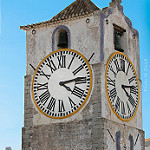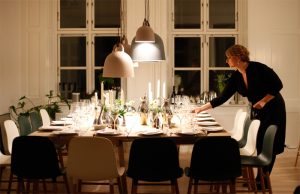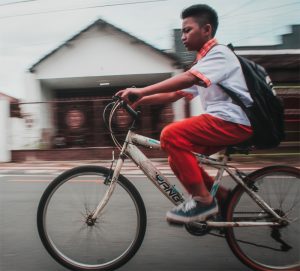1.02: Unidade 1 – Parte B - O Dia a Dia
- Page ID
- 172243
\( \newcommand{\vecs}[1]{\overset { \scriptstyle \rightharpoonup} {\mathbf{#1}} } \)
\( \newcommand{\vecd}[1]{\overset{-\!-\!\rightharpoonup}{\vphantom{a}\smash {#1}}} \)
\( \newcommand{\id}{\mathrm{id}}\) \( \newcommand{\Span}{\mathrm{span}}\)
( \newcommand{\kernel}{\mathrm{null}\,}\) \( \newcommand{\range}{\mathrm{range}\,}\)
\( \newcommand{\RealPart}{\mathrm{Re}}\) \( \newcommand{\ImaginaryPart}{\mathrm{Im}}\)
\( \newcommand{\Argument}{\mathrm{Arg}}\) \( \newcommand{\norm}[1]{\| #1 \|}\)
\( \newcommand{\inner}[2]{\langle #1, #2 \rangle}\)
\( \newcommand{\Span}{\mathrm{span}}\)
\( \newcommand{\id}{\mathrm{id}}\)
\( \newcommand{\Span}{\mathrm{span}}\)
\( \newcommand{\kernel}{\mathrm{null}\,}\)
\( \newcommand{\range}{\mathrm{range}\,}\)
\( \newcommand{\RealPart}{\mathrm{Re}}\)
\( \newcommand{\ImaginaryPart}{\mathrm{Im}}\)
\( \newcommand{\Argument}{\mathrm{Arg}}\)
\( \newcommand{\norm}[1]{\| #1 \|}\)
\( \newcommand{\inner}[2]{\langle #1, #2 \rangle}\)
\( \newcommand{\Span}{\mathrm{span}}\) \( \newcommand{\AA}{\unicode[.8,0]{x212B}}\)
\( \newcommand{\vectorA}[1]{\vec{#1}} % arrow\)
\( \newcommand{\vectorAt}[1]{\vec{\text{#1}}} % arrow\)
\( \newcommand{\vectorB}[1]{\overset { \scriptstyle \rightharpoonup} {\mathbf{#1}} } \)
\( \newcommand{\vectorC}[1]{\textbf{#1}} \)
\( \newcommand{\vectorD}[1]{\overrightarrow{#1}} \)
\( \newcommand{\vectorDt}[1]{\overrightarrow{\text{#1}}} \)
\( \newcommand{\vectE}[1]{\overset{-\!-\!\rightharpoonup}{\vphantom{a}\smash{\mathbf {#1}}}} \)
\( \newcommand{\vecs}[1]{\overset { \scriptstyle \rightharpoonup} {\mathbf{#1}} } \)
\( \newcommand{\vecd}[1]{\overset{-\!-\!\rightharpoonup}{\vphantom{a}\smash {#1}}} \)
Unidade 1 – Parte B - O Dia a Dia
Eduardo Viana da Silva
By the end of this lesson, you will be able to:
- Say and ask the time in Portuguese.
- List the days of the week.
- List some daily activities.
- List some leisure activities.
- Answer some simple questions about your daily routines.
- Answer some simple questions about your leisure activities.
1 – As horas
An audio element has been excluded from this version of the text. You can listen to it online here: https://uw.pressbooks.pub/batepapo/?p=294
| bom dia 6:15 (seis e quinze) da manhã em Londres |
boa tarde 3:15 (três e quinze) da tarde em Portugal |
boa noite 7 (sete) da noite em Moçambique |

Picture of Big Ben in London
|

Picture of the clock on Igreja de Santa Maria, Tavira, Portugal
|

Picture of the clock in the train station in Maputo, Mozambique
|
CONVERSA – E AÍ CYNTHIA! QUE HORAS SÃO?
A video element has been excluded from this version of the text. You can watch it online here: https://uw.pressbooks.pub/batepapo/?p=294
Cynthia: Olha, agora são cinco e dez (5:10).
Felipe: Ai, brigado.
| Glossário/ Glossary: |
| olha – look brigado: short for obrigado – thank you |
| Que horas são? – What time is it? | |
|---|---|
| São 6:15 (seis e quinze) da manhã em Londres. | It is 6:15 in the morning in London. |
| São 3:15 (três e quinze) da tarde em Portugal. | It is 3:15 in the afternoon in Portugal. |
| São 7:00 (sete) da noite em Moçambique. | It is 7:00 at night in Mozambique. |
2 –os números (1-50)
| 10 – dez 11 – onze 12 – doze 13 – treze 14 – catorze 15 – quinze |
16 – dezesseis 17 – dezessete 18 – dezoito 19 – dezenove 20 – vinte |
30 – trinta 31 – trinta e um 32 – trinta e dois 33 – trinta e três 34 – trinta e quatro 35 – trinta e cinco |
36 – trinta e seis 37 – trinta e sete 38 – trinta e oito 39 – trinta e nove 40 – quarenta 50 – cinquenta |
Aquecimento – Warm-up
An audio element has been excluded from this version of the text. You can listen to it online here: https://uw.pressbooks.pub/batepapo/?p=294
2.1 – Working in pairs, use your phone or computer to check the current times in the following cities.
São __________da manhã/ da tarde/ da noite em _____________
| Estudante A | Horário | Estudante B | Horário |
| São Paulo, Brasil | Los Angeles, Estados Unidos | ||
| Nova Iorque, E.U.A. | Lisboa, Portugal | ||
| Maputo, Moçambique | Dili, Timor Leste | ||
| Londres, Inglaterra | Manaus, Brasil |
As Refeições e as Horas – Meals and Meal Times

| REFEIÇÕES – Meals | HORAS |
| o café da manhã – breakfast o café – coffee/ coffee-break |
Normalmente entre 6:00 (seis) e 9:00 (nove) da manhã |
| o almoço – lunch o lanche – snack |
Geralmente entre 12:00 (meio dia) e 2:00 (duas) da tarde |
| o jantar – dinner | Normalmente entre 7:00 (sete) e 9:00 (nove) da noite |
| Glossary: |
| entre – between |
| Common ways to tell time: | ||
|---|---|---|
| 6:30 (às seis e meia) 8:45 (às quinze pras nove) |
12:00 pm (ao meio dia) 12:00 am (à meia noite) |
8:00 (às oito em ponto) 8 sharp 14:00 (2:00 pm) às catorze horas |
| 2.2 – Escute a sua professora/ o seu professor e escreva o horário abaixo. Ex. 12:00. Compare a sua resposta com um colega depois.
Listen to your instructor and write the times below. E.g. 12:00. Compare your answers with a classmate afterwards. |
|---|
| a – Ele/Ela normalmente toma café da manhã às |
| b – Ele/Ela almoça geralmente à/às/ao |
| c – Ele/Ela faz um lanche (have a snack) às |
| d – Ele/Ela janta às |
| 2.3 – Responda as perguntas abaixo de acordo com o modelo e compare sua resposta com um colega.
Answer the questions below according to the model and compare your answers with a classmate. |
||
|---|---|---|
| e.g. A que horas você toma café da manhã? | Às | sete e trinta (sete e trinta) |
| a – A que horas você toma café da manhã? | Às | |
| b – A que horas você almoça geralmente? | Às/Ao | |
| c – A que horas você janta normalmente? | Às | |
Aquecimento – Warm-up
| 2.4 – Complete the days of the week in the chart below: | ||||
|---|---|---|---|---|
| dias da semana days of the week |
segunda | – Monday | – Thursday | |
| – Tuesday | – Friday | |||
| quarta | – Wednesday | |||
| fim de semana weekends |
sábado | – Saturday | – Sunday | |
An audio element has been excluded from this version of the text. You can listen to it online here: https://uw.pressbooks.pub/batepapo/?p=294
| Glossário – Glossary: | ||
|---|---|---|
| acorda – wake up dorme – sleep |
tem aulas – have classes estuda – study |
trabalha – work Não trabalho. – I don’t work. |
| 2.5 – Answer the questions below.
An audio element has been excluded from this version of the text. You can listen to it online here: https://uw.pressbooks.pub/batepapo/?p=294 |
| a – A que horas você acorda nos domingos normalmente? Acordo às |
| b – A que horas você dorme nas sextas geralmente? Durmo às |
| c – A que horas você tem aulas nas segundas? Tenho aulas às |
| d – A que horas você estuda durante a semana? Estudo às |
| e – A que horas você trabalha durante a semana? Trabalho às |
| REGULAR VERBS: acordar, estudar, trabalhar | IRREGULAR VERBS: dormir, ter | ||
|---|---|---|---|
| eu trabalho | a gente trabalha/ | eu durmo | a gente dorme/ |
| nós trabalhamos | nós dormimos | ||
| tu trabalhas | tu dormes | ||
| ela/ele/você trabalha | elas/eles/vocês trabalham | ela/ele/você dorme | elas dormem |

Click here for a grammar explanation on demonstratives and verb conjugation in Portuguese.
| 2.6 – Compare your answers with a classmate and write his/her answers below. Write his/her name. e.g. A Kayla
An audio element has been excluded from this version of the text. You can listen to it online here: https://uw.pressbooks.pub/batepapo/?p=294 |
|---|
| A/O |
| Ela/Ele acorda às |
| Ela/Ele dorme |
| Ela/Ele tem aulas |
| Ela/Ele trabalha |
| EXPANSÃO DO VOCABULÁRIO | |
|---|---|
| entre – between – Trabalho entre às 16 e 20 horas das/ às – from/ to – Trabalho das 16 às 20 horas. às 8 da manhã, às 4 da tarde, às 8 da noite |
na segunda, na terça, na quarta na quinta, na sexta no sábado, no domingo de manhã, à tarde, à noite |
3 – Atividades Diárias – Daily Activities
| cozinhar – to cook | andar – to walk | pegar o ônibus to take the bus |
estudar – to study |
 |
 |
 |
 |
| jantar – to have dinner | almoçar– to have lunch | andar de bicicleta to ride a bicycle |
tomar o café da manhã – to have breakfast |
 |
 |
 |
 |
Atividades Diárias – Daily Activities
| 3.1 – Escute a sua professora/ o seu professor e escolha a resposta correta. Depois compare suas respostas com um colega.
Listen to your instructor and choose the correct options. Afterwards, compare your answers with a classmate. |
|---|
| Glossary: | |||
|---|---|---|---|
| pouco – a little bit | muito – a lot | nunca – never | faculdade – college |
| a- Ela/Ele… | ( ) cozinha pouco. | ( ) cozinha muito. | ( ) nunca cozinha. |
| b- Ela/Ele… | ( ) anda pouco de bicicleta. | ( ) anda muito de bicicleta. | ( ) nunca anda de bicicleta. |
| c -Ela/Ele… | ( ) pega o ônibus pra faculdade. | ( ) nunca pega o ônibus pra faculdade. | |
| d -Ela/Ele… | ( ) janta muito na faculdade. | ( ) janta pouco na faculdade. | ( ) nunca janta na faculdade. |
| 3.2 – Quando você faz essas atividades?
An audio element has been excluded from this version of the text. You can listen to it online here: https://uw.pressbooks.pub/batepapo/?p=294 Quando você faz essas atividades? / When do you do these activities? |
||
|---|---|---|
| COZINHAR to cook | Eu cozinho Tu cozinhas Ela/Ele/Você cozinha |
A gente cozinha/ Nós cozinhamos
Elas/Eles/ Vocês cozinham |
| Glossário – Glossary | ||
|---|---|---|
| Sim – Yes | quando – when | uma vez por semana – once a week |
| Não – No | fazer – to make/to do | duas vezes por semana – twice a week |
| Depende – It depends. | às vezes – sometimes | três vezes por semana – three times a week |
| Exemplo: | |
|---|---|
| Quando você cozinha? | (Eu) Cozinho três vezes por semana./ or Eu não cozinho. |
| Quando você janta? | Normalmente, janto às sete da noite. |
An audio element has been excluded from this version of the text. You can listen to it online here: https://uw.pressbooks.pub/batepapo/?p=294
| Estudante A |
|---|
| Quando você cozinha? |
| Quando você pega o ônibus? |
| Quando você almoça? |
| Quando você anda de bicicleta? |
| Estudante B |
|---|
| Quando você cozinha? |
| Quando você almoça? |
| Quando você toma o café da manhã? |
| Quando você estuda? |
| 3.3 – In pairs, ask each other the questions from your own chart. |
|---|
| 3.4 – Associate the picture on the left with the places on the right. There is more than one option.
An audio element has been excluded from this version of the text. You can listen to it online here: https://uw.pressbooks.pub/batepapo/?p=294 |
|||
|---|---|---|---|
| cozinhar – to cook
|
NO RESTAURANTE in the restaurant |
pegar o ônibus to take the bus  |
NA RUA in the street |
| jantar – to have dinner
|
NA FACULDADE at the university |
andar de bicicleta to ride a bicycle  |
NA BIBLIOTECA in the library |
| andar – to walk
|
EM CASA at home |
estudar – to study
|
NO RESTAURANTE in the restaurant |
| almoçar– to have lunch
|
NA CALÇADA on the sidewalk |
tomar o café da manhã to have breakfast
|
NO CAMPUS on campus |
| Importante: | |
|---|---|
| em + o = no | em + a = na |
| 3.5 – Responda às perguntas abaixo e fale com um colega na sala.
Answer the questions below and speak with a classmate. |
|---|
| Glossary: | |
|---|---|
| Onde? – Where? | Quando? – When? |
| Exemplo: | |
|---|---|
| Onde você estuda? | Na biblioteca. |
| a – Em geral, onde você estuda? |
| b – Onde você almoça durante a semana? |
| c – Onde você janta normalmente? |
| d – Onde você anda de bicicleta? |
4 – Atividades de Lazer – Leisure Activities
An audio element has been excluded from this version of the text. You can listen to it online here: https://uw.pressbooks.pub/batepapo/?p=294
| jogar futebol jogar videogame play soccer/ videogames  |
ir no cinema go to the movies  |
assistir Netflix/ Hulu watch Netflix/ Hulu  |
surfar/ ir pra praia to surf/ go to the beach  |
| sair com os amigos go out with friends sair na balada/ na night go out clubbing  |
fazer trilha to hike  |
malhar work out  |
ir pro shopping go to the mall  |
| 4.1 – Responda às perguntas abaixo.
Answer the questions below. Compare with a colleague.
An audio element has been excluded from this version of the text. You can listen to it online here: https://uw.pressbooks.pub/batepapo/?p=294 |
||
|---|---|---|
| Você joga futebol? | ( ) Jogo sim. | ( ) Não jogo não. |
| Você vai ao cinema? | ( ) Vou sim. | ( ) Não vou não. |
| Você malha? | ( ) Malho sim. | ( ) Não malho não. |
| Você faz trilha? | ( ) Faço sim. | ( ) Não faço não. |
| Você assiste Netflix? | ( ) Assisto sim. | ( ) Não assisto não. |
| Você sai na balada? | ( ) Saio sim. | ( ) Não saio não. |
| 4.2 – Escute a sua professora/ o seu professor e escolha a resposta correta. Depois compare suas respostas com um colega.
Listen to your instructor and choose the correct options. Afterwards, compare your answers with a classmate. |
||
|---|---|---|
| a – Ela/Ele… | ( ) joga futebol. | ( ) não joga futebol. |
| b – Ela/Ele… | ( ) nunca sai na balada. | ( ) às vezes sai na balada. |
| c – Ela/Ele… | ( ) assiste o Netflix. | ( ) nunca assiste o Netflix. |
| d – Ela/Ele… | ( ) sempre faz trilhas. ( ) às vezes faz trilhas. |
( ) nunca faz trilhas. |
| 4.3 – Atividades para caminhar na sala. / Activities to walk around in class.
An audio element has been excluded from this version of the text. You can listen to it online here: https://uw.pressbooks.pub/batepapo/?p=294 |
|---|
| Talk to several classmates in Portuguese and ask the questions below. Write only the names of classmates who do the activities below. You can write different names in each column. |
| Exemplo:
Estudante A – Você joga futebol? |
| Nome: | Nome: | Nome: | |
|---|---|---|---|
| Você joga futebol? | |||
| Você sai com os amigos? | |||
| Você faz trilhas? | |||
| Você joga video game? | |||
| Você malha? | |||
| Você surfa? |
| Jogo futebol/video game Não jogo futebol/video game |
Saio com os amigos. Não saio com os amigos. |
Faço trilhas. Não faço trilhas. |
Malho. / Não malho. Surfo./ Não surfo. |
| 4.4 – Associate the picture on the left with the places on the right. There is more than one option.
An audio element has been excluded from this version of the text. You can listen to it online here: https://uw.pressbooks.pub/batepapo/?p=294 |
|||
|---|---|---|---|
| jogar futebol jogar videogame play soccer/ videogames  |
NAS MONTANHAS in the mountains |
assistir Netflix/ Hulu watch Netflix/ Hulu  |
NA PRAIA at the beach |
| sair na balada/ na night go out clubbing  |
NO CLUBE at the club |
malhar work out  |
NO DORMITÓRIO in the dorms |
| fazer trilha to hike  |
NA PRAIA at the beach |
surfar to surf  |
NA ACADEMIA at the gym |
| EXPANSÃO DE VOCABULÁRIO | ATIVIDADES |
|---|---|
| NA PRAIA | tomar banho de sol – to sunbathe andar/caminhar – to walk nadar – to swim |
| EM CASA | descansar – to rest assistir/ver televisão/ TV – to watch TV ficar com os amigos – to hang out with friends |
| NA BALADA | dançar – to dance rir – to laugh beber – to drink |
5 – CONVERSA 1 – fazer compras ou ir na praia
An audio element has been excluded from this version of the text. You can listen to it online here: https://uw.pressbooks.pub/batepapo/?p=294
| Maria: Oi, tudo bem? Pedro: Tudo, e você? Maria: Tudo. Você tá a fim de ir no shopping? Pedro: Eu adoro fazer compras, mas tô sem dinheiro! Maria: Entendo, claro! Você gosta de caminhar na praia? Pedro: Gosto sim. Maria: Então vamos pra praia! |
 |
| Glossary: | Grammar and Contractions |
|---|---|
| adoro – I love it. | gostar + de – to like something/someone. E.g. “Gosto de assistir Netflix.” |
| tá a fim – feel like it | tá – short for “está” – is/are |
| entendo – I understand. | tô – short for “estou” – I am. |
| claro – of course | |
| sem – without | |
| então – so |
| 5.1 – Comprehension questions. Write “V” for Verdadeiro (True), “F” for Falso (False), ou “FI” for Falta de informação (Missing information) |
|---|
| a. ( ) Pedro is short on money. |
| b. ( ) Pedro doesn’t like to walk on the beach. |
| c. ( ) Maria is an understanding person. |
| d. ( ) Maria and Pedro are going to the shopping mall. |
Aquecimento – Warm-up
An audio element has been excluded from this version of the text. You can listen to it online here: https://uw.pressbooks.pub/batepapo/?p=294
| 5.2 – O que você gosta de fazer? Escolha as opções abaixo.
What do you like to do? Choose from the options below. |
|---|
| NA PRAIA | |
|---|---|
| ( ) Eu gosto de tomar banho de sol. | ( ) Eu não gosto de tomar banho de sol. |
| ( ) Eu gosto de caminhar na praia. | ( ) Eu não gosto muito de caminhar na praia. |
| ( ) Eu gosto de nadar. | ( ) Eu não gosto de nadar. |
| EM CASA | |
|---|---|
| ( ) Eu gosto de descansar no sofá. | ( ) Eu não gosto de descansar no sofá. |
| ( ) Eu gosto muito de ver TV./ gosto de ver TV. | ( ) Eu não gosto de ver TV. |
| ( ) Eu gosto de ficar em casa. | ( ) Eu não gosto de ficar em casa. |
| 5.3 – Atividades para caminhar na sala. / Activities to walk around in class. Talk to several classmates in Portuguese and ask the questions below. Write only the names of classmates who say yes. |
|---|
An audio element has been excluded from this version of the text. You can listen to it online here: https://uw.pressbooks.pub/batepapo/?p=294
| Exemplo:
Estudante A – Você gosta de viajar? (travel) |
| Nome: | Nome: | Nome: | |
|---|---|---|---|
| Você gosta de nadar? | |||
| Você gosta de tomar banho de sol? | |||
| Você gosta de caminhar na praia? | |||
| Você gosta de ficar em casa? | |||
| Você gosta de dançar? | |||
| Você gosta de sair com amigos? |
| Expressões úteis | ||
|---|---|---|
| Eu também – Me too | Jóia – Great | Mesmo? – Really? |
| Eu também não – Me neither | Legal – Cool | Beleza – Awesome |
| Write the expressions above that correspond to the emojis below: | ||
|---|---|---|
6 – Os Estudantes na Universidade
An audio element has been excluded from this version of the text. You can listen to it online here: https://uw.pressbooks.pub/batepapo/?p=294
LEITURA – A VIDA DOS ESTUDATES UNIVERSITÁRIOS
A vida dos estudantes universitários brasileiros é bem diferente da vida dos estudantes universitários americanos. No Brasil, dependendo da u niversidade e do curso, muitos trabalham 40 horas por semana e estudam durante a noite.
niversidade e do curso, muitos trabalham 40 horas por semana e estudam durante a noite.
Em universidades públicas, vários estudantes têm estágios e são assistentes de professores. Nos fins de semana, alguns gostam de ficar em casa com a família e de sair com os amigos; outros estudantes moram em repúblicas e saem com os amigos da faculdade.
| Glossary: | Gramática |
|---|---|
| estágios – internships | alguns (some) is used with masculine words. E.g. Alguns carros. |
| alguns – some | algumas (some) is used with feminine words. E.g. Algumas mesas. |
| ficar – to stay | saem – go out |
| faculdade – university, college |
| 6.1 – Choose from the options below. Escolha as opções abaixo. | ||
|---|---|---|
| a – University life in Brazil is about the same as in the United States. | ( ) Verdadeiro | ( ) Falso |
| b – Many university students in Brazil have part-time jobs. | ( ) Verdadeiro | ( ) Falso |
| c – Some students spend their weekend with their families. | ( ) Verdadeiro | ( ) Falso |
| d – There are dorms in Brazil in some universities as well. | ( ) Verdadeiro | ( ) Falso |
| 6.2 – Write the infinitive form of the verbs below from the text and write the translation in English: | ||||||||
|---|---|---|---|---|---|---|---|---|
| E.g. bebem | beber | to drink | ||||||
| trabalham | moram | |||||||
| estudam | ficam | |||||||
7 – A vida no Rio de Janeiro
|
An audio element has been excluded from this version of the text. You can listen to it online here: https://uw.pressbooks.pub/batepapo/?p=294 7.1 – Em pares (In pairs) – Atividade de conhecimentos gerais. General Knowledge activity. |
||
|---|---|---|
| O que você acha? – What do you think? | V | F |
| a – A cidade do Rio de Janeiro tem 10 milhões de habitantes. | ||
| b – Os habitantes da cidade do Rio são os “cariocas.” | ||
| c – O futebol é um esporte importante no Brasil. No Rio de Janeiro, o vôlei de praia e o futebol de praia são importantes também. | ||
| d – Em geral, os estudantes universitários do Rio gostam de caminhar na praia e de sair na balada com os amigos. | ||
| 7.2 – Leia o texto abaixo e confira suas respostas do exercício 7.1./ Read the text below and verify your answers from exercise 7.1. |
|---|
A cidade do Rio de Janeiro é a segunda maior cidade do Brasil com uma população aproximada de 6,5 milhões de pessoas. Os habitantes do Rio de Janeiro são conhecidos como cariocas. Os cariocas gostam de fazer atividades ao ar livr
 e, como caminhar na praia e andar de bicicleta nos fins de semana.O Rio de Janeiro tem muitas praias. O futebol e vôlei de praia são muito famosos na cidade. Muitas pessoas jogam futebol, vôlei e futevôlei nas praias de Ipanema e Copacabana. Em geral, os estudantes das universidades do Rio gostam de sair na night carioca e de caminhar e praticar esportes na praia.
e, como caminhar na praia e andar de bicicleta nos fins de semana.O Rio de Janeiro tem muitas praias. O futebol e vôlei de praia são muito famosos na cidade. Muitas pessoas jogam futebol, vôlei e futevôlei nas praias de Ipanema e Copacabana. Em geral, os estudantes das universidades do Rio gostam de sair na night carioca e de caminhar e praticar esportes na praia.
| Glossary: | |
|---|---|
| conhecidos – known | sair – to go out |
| ar livre – outdoor | praticar esportes – play sports |
Can-Do Statements
| I can | Fully | Minimally | No ability |
|---|---|---|---|
| say and ask the time in Portuguese. | |||
| list the days of the week. | |||
| list some daily activities. | |||
| list some leisure activities. | |||
| answer simple questions about my daily routine. | |||
| answer simple questions about my leisure activities. |
VOCABULÁRIO
| Numbers | |||
|---|---|---|---|
| 10 – dez 11 – onze 12 – doze 13 – treze 14 – catorze 15 – quinze |
16 – dezesseis 17 – dezessete 18 – dezoito 19 – dezenove 20 – vinte |
21 – vinte e um 22 – vinte e dois 23 – vinte e três 24 – vinte e quatro 25 – vinte e cinco |
26 – vinte e seis 27 – vinte e sete 28 – vinte e oito 29 – vinte e nove 30 – trinta 31 – trinta e um |
VOCABULÁRIO
| Atividades Diárias | Que horas são? – What time is it? |
|---|---|
| cozinhar – to cook tomar café da manhã – to have breakfast almoçar – to have lunch fazer um lanche – have a snack jantar – to have dinner andar/caminhar – to walk pegar o ônibus – to take the bus andar de bicicleta – to ride a bike estudar – to study trabalhar – to work acordar – to wake up dormir – to sleep |
São 6:15 (seis e quinze) da manhã em Londres. It is 6:15 in the morning in London.
São 3:15 (três e quinze) da tarde em Portugal. It is 3:15 in the afternoon in Portugal. São 7:00 (sete) da noite em Moçambique. It is 7:00 at night in Mozambique. |
VOCABULÁRIO
| Atividades de Lazer – Leisure Activities | |
|---|---|
| jogar futebol – to play soccer jogar videogame – to play videogames ir ao cinema – to go to the movies assistir Netflix/Hulu – to watch Netflix/Hulu surfar – to surf ir pra praia – to go to the beach |
sair com os amigos – to go out with friends sair na balada/ sair na night – to go out clubbing malhar – to workout fazer trilha – to go hiking ir pro shopping – to go to the mall |
VOCABULÁRIO
| EXPANSÃO DE VOCABULÁRIO | ATIVIDADES |
|---|---|
| NA PRAIA | tomar banho de sol – to sun bath andar/caminhar – to walk nadar – to swim |
| EM CASA | descansar – to rest assistir/ver televisão/ TV – watch TV ficar com os amigos – hang out with friends |
| NA BALADA | dançar – to dance rir – to laugh beber – to drink |
VOCABULÁRIO
| EM CASA | |
|---|---|
| Eu gosto de descansar no sofá. | Eu não gosto de descansar no sofá. |
| Eu gosto muito de ver TV./ gosto de ver TV. | Eu não gosto de ver TV. |
| Eu gosto de ficar em casa. | Eu não gosto de ficar em casa. |
| Você gosta de nadar? |
| Você gosta de tomar banho de sol? |
| Você gosta de caminhar na praia? |
| Você gosta de ficar em casa? |
| Você gosta de dançar? |
| Você gosta de sair com amigos? |


